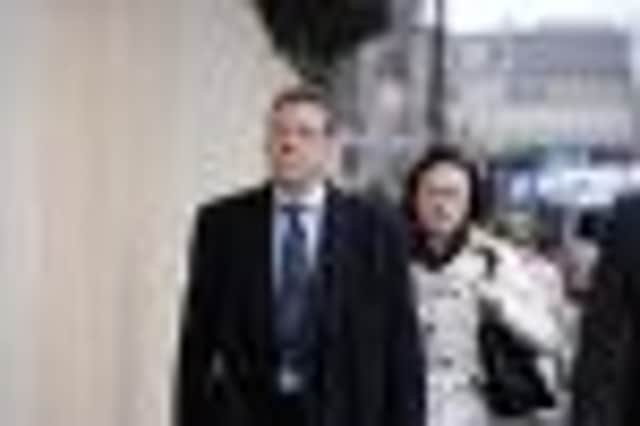David Gilroy going to Supreme Court after appeal against Suzanne Pilley murder conviction fails


• David Gilroy was sentenced to serve at least 18 years of a life sentence before being eligible to apply for parole for murdering Ms Pilley
• John Scott argued trial ought to have been aborted when full copies of report by expert witness had been distributed to the jury by mistake
Advertisement
Hide AdAdvertisement
Hide Ad• Ms Pilley’s body has never been found but is beleived to have been buried in Argyll


Judges at the Court of Criminal Appeal in Edinburgh said they had “no doubt” they should dismiss David Gilroy’s claim to have suffered a miscarriage of justice.
Lawyers for Gilroy immediately sought leave to appeal to the Supreme Court, but the judges said they would not hear an application until there had been the chance to study full written reasons for their ruling, which would be issued as soon as possible.
Gilroy showed no emotion as he was led back to the cells.
Ms Pilley’s parents had attended the hearing but declined to comment as they left.
Gilroy’s family, including his wife, Andrea, also had no comment to make.
Ms Pilley, 38, had ended a relationship with Gilroy, 50, shortly before she disappeared on 4 May, 2010, as she arrived at the office in Edinburgh city centre where they both worked.
At a trial earlier this year, Gilroy was found guilty of murdering Ms Pilley by unknown means, and was ordered to serve at least 18 years of a life sentence before he could apply for parole.
Her body has never been found, but it is suspected Gilroy buried it somewhere in Argyll.
Advertisement
Hide AdAdvertisement
Hide AdJohn Scott, QC, for Gilroy, submitted at the appeal that the verdict should be overturned because the trial judge, Lord Bracadale, had allowed evidence obtained from Gilroy without his being cautioned by the police.
The court heard Gilroy had made three statements to the police on 6 and 8 May before his status was formally changed from a witness to a suspect. As merely a witness, he had not been warned before any of the statements that he need not say anything, and, if he did, it could be used as evidence.
Gilroy made no incriminating replies to questioning, but the prosecution at his trial led evidence to contradict things he had said, such as the nature of his relationship with Ms Pilley and whether a journey for his work to Lochgilphead, Argyll, the day after she vanished had been prearranged or unexpected.
“I cannot point to a specific part of any of the statements and say, ‘That is the killer blow.’ But because this was a circumstantial case, any adverse impression formed of him by the contradiction of things he had said to the police perhaps makes it easier for the jury to accept the Crown case,” said Mr Scott.
“I accept it was a rapidly developing investigation. It was characterised as a missing person inquiry but I say that from a very early stage, certainly before the first statement, it was in all but name a major criminal investigation.”
In a second ground of appeal, Mr Scott argued that the trial ought to have been aborted when full copies of a written report by an expert witness had been distributed to the jury by mistake. Sections of the report in which the witness had speculated on how Ms Pilley might have disappeared should have been removed but, inadvertently, that had not been done in three copies.
Lord Bracadale had allowed the trial to continue and had directed the jury to ignore the passages.
Lord Carloway, the Lord Justice-Clerk, sitting with Lords Brodie and Wheatley, said “The court is in no doubt that neither ground of appeal can succeed. We have no reason to depart from the trial judge’s view that the first statement, to which particular importance was attached, was obtained during the investigation of a missing person rather than as part of the compilation of a case against a suspect.
Advertisement
Hide AdAdvertisement
Hide Ad“Even if the statements had been ruled inadmissible, there was no realistic prospect of the jury reaching a different verdict, standing the preponderance of other circumstantial evidence.”
The judges said it was “extremely unfortunate” that full reports had been placed before the jury in face of an agreement by prosecution and defence that edited versions should be given.
“However, the court does not consider this could have had any material effect on the jury’s deliberations, particularly given the directions to the jury,” added Lord Carloway.
“In these circumstances, this appeal is refused.”